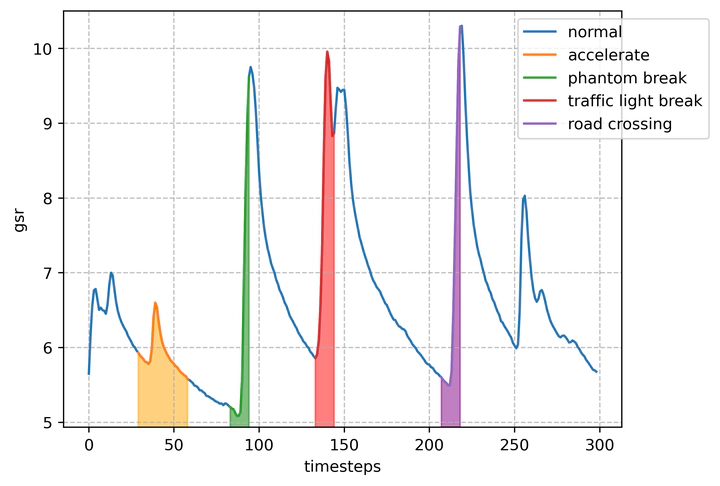
Abstract
We investigate the task of predicting stress affection from physiological data of users experiencing simulations of autonomous driving. We approach this task on two levels of granularity, depending on whether the prediction is performed at the end of the simulation, or along the simulation. In the former, denoted as coarse-grained prediction, we employed Decision Trees. In the latter, denoted as fine-grained prediction, we employed Echo State Networks, a Recurrent Neural Network that allows efficient learning from temporal data and hence is suitable for pervasive environments. We conduct experiments on a private dataset of physiological data from people participating in multiple driving scenarios simulating different stress-inducing events. The results show that the proposed model is capable of detecting event-related stress reactions, proving the existence of a correlation between stress-inducing events and the physiological data.